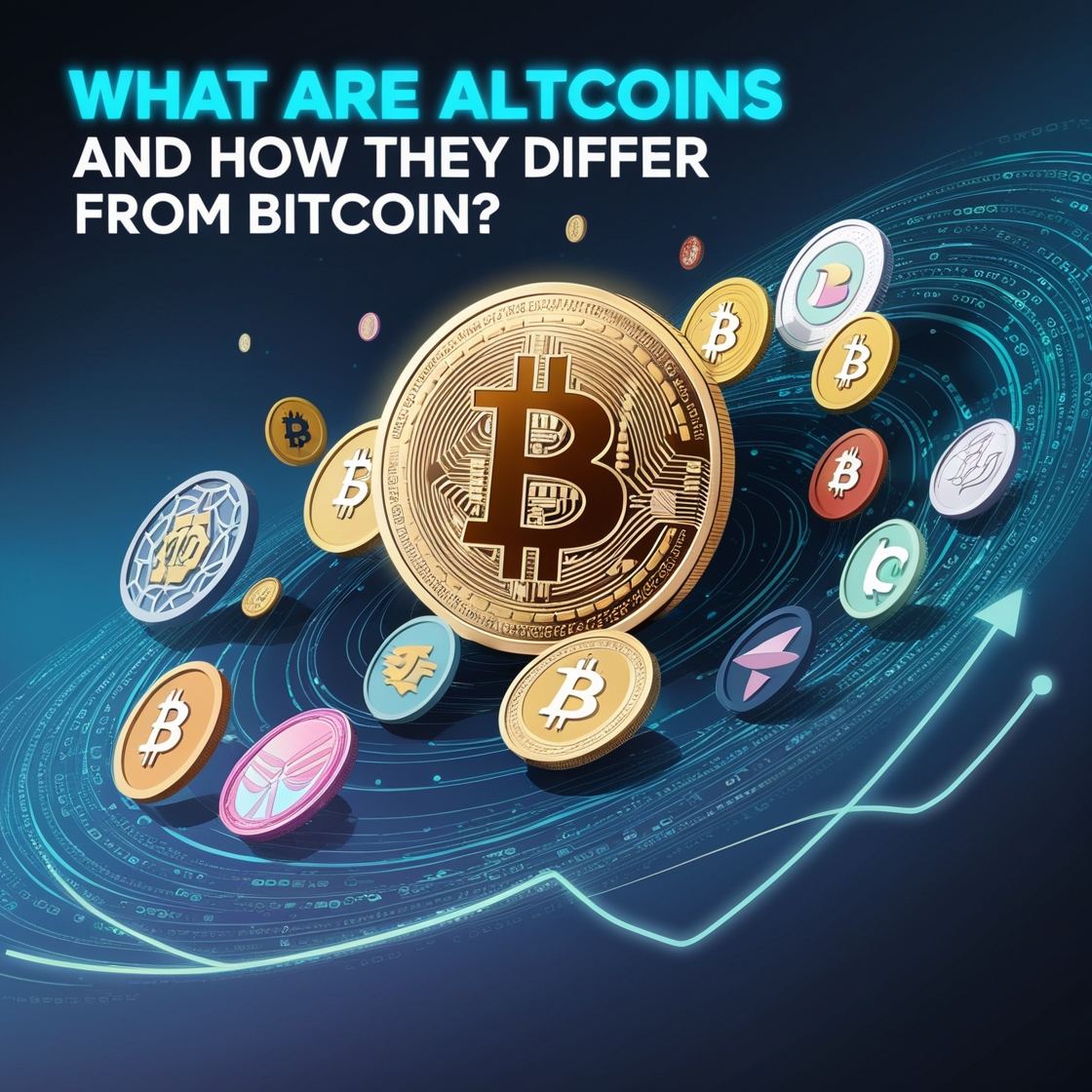Introduction to Altcoins
Defining Altcoins
Altcoins, short for “alternative coins,” refer to any cryptocurrency other than Bitcoin. These digital currencies are built on blockchain technology, similar to Bitcoin, but often aim to address limitations or explore new use cases.
Importance of Altcoins in the Crypto Ecosystem
Altcoins play a critical role in diversifying the cryptocurrency market. They bring innovation, enabling more specialized applications such as smart contracts, decentralized finance (DeFi), and scalability improvements.
The Origins of Bitcoin
Bitcoin as the Pioneer of Cryptocurrency
Introduced in 2009 by the pseudonymous Satoshi Nakamoto, Bitcoin revolutionized the concept of digital currency. It serves as a decentralized, peer-to-peer system, eliminating the need for intermediaries.
Bitcoin’s Core Features and Limitations
While Bitcoin’s secure blockchain and scarcity (21 million coins) have made it a store of value, its slow transaction speeds and energy-intensive mining process highlight areas for improvement.
How Altcoins Emerged
The Need for Alternatives
As Bitcoin gained traction, its limitations spurred developers to create alternative cryptocurrencies to enhance features, reduce costs, and explore new opportunities.
Early Altcoins and Their Goals
The first altcoin, Namecoin, emerged in 2011 to improve domain registration systems. Over time, hundreds of altcoins appeared, each with unique purposes.
Key Differences Between Bitcoin and Altcoins
Technology and Blockchain
Bitcoin operates on a proof-of-work (PoW) consensus mechanism, whereas many altcoins use proof-of-stake (PoS) or other methods to reduce energy consumption.
Use Cases and Applications
Bitcoin primarily serves as digital gold, while altcoins like Ethereum enable smart contracts, and others focus on privacy, speed, or tokenized ecosystems.
Market Volatility and Adoption
Altcoins often experience greater price volatility due to smaller market caps, but this also presents opportunities for higher returns.
Popular Altcoins and Their Unique Features
Ethereum (ETH)
Known for introducing smart contracts, Ethereum is the backbone of DeFi and NFTs.
Litecoin (LTC)
Often referred to as the silver to Bitcoin’s gold, Litecoin boasts faster transaction times and lower fees.
Cardano (ADA)
With a focus on sustainability, Cardano uses a PoS consensus for a more eco-friendly approach.
Binance Coin (BNB)
Initially designed for discounted trading fees, BNB has expanded to power the Binance ecosystem.
Benefits of Altcoins
Diversity in Functionality
Altcoins explore niches, offering solutions for specific industries like healthcare, logistics, and gaming.
Lower Transaction Costs
Many altcoins enable faster and cheaper transactions compared to Bitcoin.
Opportunities for Investment Growth
Emerging altcoins often have significant growth potential, attracting speculative investors.
Challenges of Altcoins
Regulatory Uncertainty
Lack of global consensus on cryptocurrency regulations creates barriers for altcoin adoption.
Market Risks
The high volatility of altcoins can lead to significant losses for uninformed investors.
Lack of Awareness Among Users
Newcomers to crypto often gravitate toward Bitcoin, overlooking the potential of altcoins.
How to Choose Between Bitcoin and Altcoins
Investment Goals
Define whether you’re seeking long-term stability or high-risk, high-reward opportunities.
Risk Appetite
Altcoins can be riskier investments; assess your comfort level with market fluctuations.
Technological Interest
For those fascinated by blockchain innovation, altcoins offer diverse technological solutions.
Future of Altcoins
Trends in Altcoin Development
Altcoins are advancing rapidly with improved scalability, security, and interoperability features.
Potential to Overtake Bitcoin
Some altcoins may surpass Bitcoin in use cases and market dominance, especially in specialized industries.
Conclusion
Altcoins are an essential part of the cryptocurrency landscape, offering innovation and diversity. While Bitcoin remains the foundational pillar, altcoins provide opportunities to explore new possibilities and investments.
FAQs
- What makes altcoins different from Bitcoin?
Altcoins often feature unique technologies, faster transaction speeds, or specialized use cases. - Are altcoins a better investment than Bitcoin?
It depends on your goals—altcoins can offer higher returns but come with increased risks. - How do altcoins achieve lower transaction fees?
Many altcoins use advanced consensus mechanisms like PoS, which are more efficient than Bitcoin’s PoW. - Is Ethereum an altcoin or a standalone cryptocurrency?
Ethereum is considered an altcoin as it was introduced after Bitcoin, but its ecosystem is vast. - Can altcoins replace traditional currencies?
While some aim to be a digital cash system, widespread adoption depends on technological and regulatory advancements.
